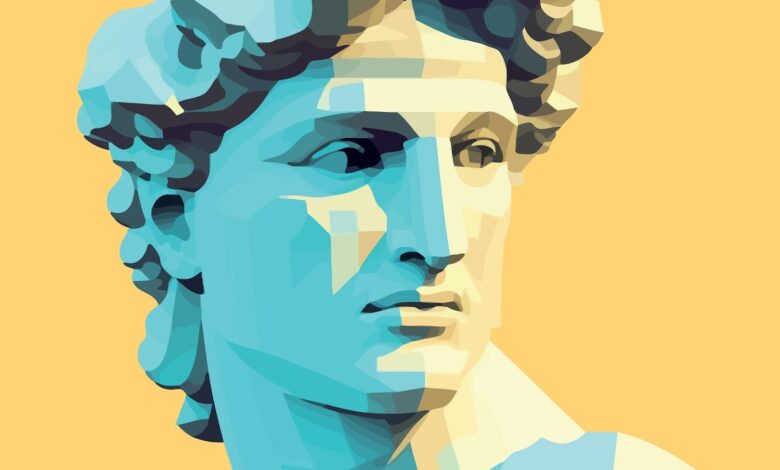
In the late 5th century BC, ancient Greek physicians realized that our health depends in part on the state of our thoughts.
In the medical book Epidemics, written about 400 BC, an unknown physician wrote that our habits of thinking (as well as our lifestyle, clothing and housing, physical activity, and gender) are major determinants of our health.
2. Mental health problems can make us sick
In Epidemics, an anonymous physician describes one of his patients, Parmeniscus, whose mental condition worsened to such an extent that he became delirious and eventually became unable to speak. He was hospitalized for 14 days until he was finally cured. The book does not mention how to treat the patient.
Later, the famous Greek physician Galen (129-216 AD) noticed that people often get sick because of their bad mental state:
It may be that under certain conditions “thinking” is one of the causes of health or disease, for people who are angered by anything and who are confused, agitated, and terrified for any reason often become ill because of it and overcome it. These diseases are difficult for them.
Galen also described patients who were mentally ill and some became seriously ill and died. A man had lost his money: “He had a fever for a long time. In his sleep, he constantly blamed himself, regretted and woke up in a hurry. In the end, this regret also cost him his life when he woke up. He developed delirium and inflammation of the brain, his disturbed mind was evident from his words, and he remained in this state until his death.”
3. Mental illness is preventable and treatable
In the ancient world, people had different ways to prevent or treat mental illnesses. Philosopher Aristippus, who lived in the 5th century BC, advised people to focus on the present to avoid mental breakdown: “Concentrate your mind on that part of the day in which you are working or thinking. Only the present belongs to us, not the past or what will happen in the future. “The past is gone and it is not clear whether the future will exist.”
The philosopher Cleanianus, who lived in the 4th century BC, whenever he found himself getting angry, he turned to playing music to calm himself down.
Doctors had their own approaches to dealing with mental health problems. Many advised patients to change their lifestyle to adjust their mental state. They advised people to take up new sports, follow a different diet, go on cruises, listen to lectures by philosophers, play games and mental exercises equivalent to today’s crossword puzzle or sudoku. For example, the physician Caelius Aurelius (5th century AD) thought that a diet rich in fruit was beneficial for patients suffering from insanity.
Doctors also advised people to use herbal medicines. For example, thyme was used to treat people suffering from suspicion or paranoia. Although the ancient doctors realized that the said plant could be dangerous, because sometimes it caused toxic spasms and death of patients.









